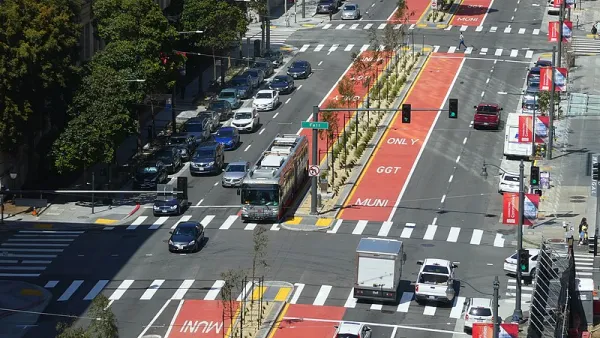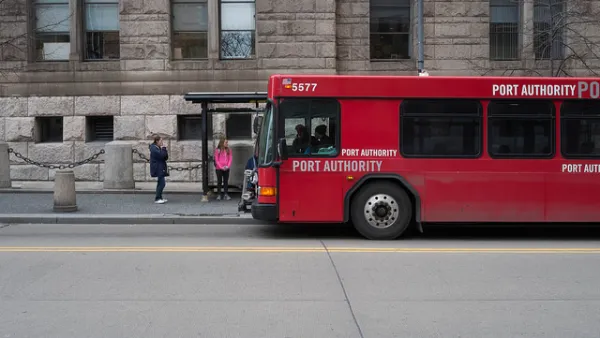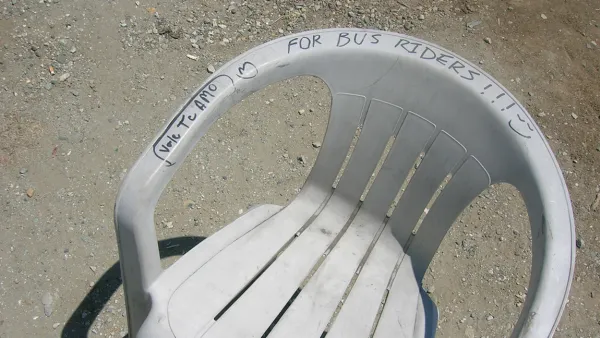Sounds counterintuitive doesn't it? But a new study by researchers at George Mason University suggests that eliminating bus stops can drastically improve service without substantially reducing the number of riders served.
It's a hypothetical study involving a rather unique community, but the findings reported by public policy professor Edmund Zolnik and a group of researchers at George Mason University could have broad significance. "In a paper published earlier this year, they concluded [a bus system in Fairfax, Va. that serves the university community] could reduce travel times by 23 percent and cut operating costs by about same amount if it scrapped 43 percent of its bus stops," reports Ryan Holeywell.
"That may seem dramatic, but they say it wouldn't drastically reduce the number of community members served by the system," adds Holeywell. But that conclusion is based on the assumption that passengers would be willing to walk half a mile to a stop.
The study found that reducing the City-University-Energysaver (CUE) bus system's stops from 121 to 68 resulted in shortening a one-way trip on the route from 2 hours and 4 minutes to 1 hour and 36 minutes.
"Not only would that make the trip shorter for existing riders, Zolnik says, but such a reduction in travel times would likely encourage more people to use the system since it could be more useful for them. Moreover, the transit system could use the savings to fund things that might encourage transit use, like cheaper fares or upgraded bus shelters."
FULL STORY: Why Getting Rid of Bus Stops Can Improve Bus Service

Analysis: Cybertruck Fatality Rate Far Exceeds That of Ford Pinto
The Tesla Cybertruck was recalled seven times last year.

National Parks Layoffs Will Cause Communities to Lose Billions
Thousands of essential park workers were laid off this week, just before the busy spring break season.

Retro-silient?: America’s First “Eco-burb,” The Woodlands Turns 50
A master-planned community north of Houston offers lessons on green infrastructure and resilient design, but falls short of its founder’s lofty affordability and walkability goals.

Test News Post 1
This is a summary

Analysis: Cybertruck Fatality Rate Far Exceeds That of Ford Pinto
The Tesla Cybertruck was recalled seven times last year.

Test News Headline 46
Test for the image on the front page.
Urban Design for Planners 1: Software Tools
This six-course series explores essential urban design concepts using open source software and equips planners with the tools they need to participate fully in the urban design process.
Planning for Universal Design
Learn the tools for implementing Universal Design in planning regulations.
EMC Planning Group, Inc.
Planetizen
Planetizen
Mpact (formerly Rail~Volution)
Great Falls Development Authority, Inc.
HUDs Office of Policy Development and Research
NYU Wagner Graduate School of Public Service




























